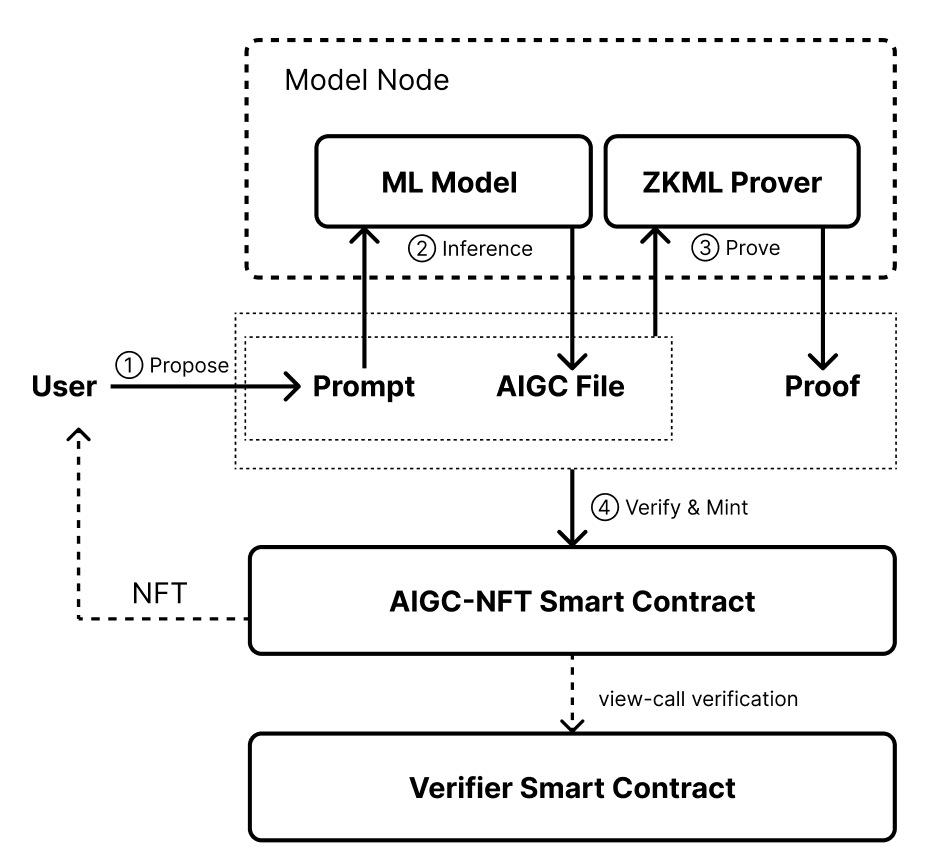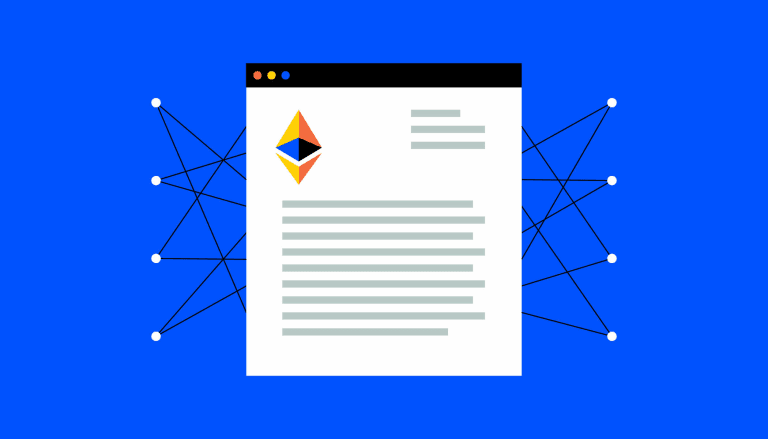Introduction
As artificial intelligence technology advances, the proliferation of AI-generated content raises significant concerns. Deepfake content, in particular, presents dangers for misinformation and fraud. Ensuring the authenticity of AI-generated media is critical for businesses and governments. The ERC-7007 standard proposes a novel approach to verify AI-generated content, leveraging Zero-Knowledge (zkML) and Optimistic Machine Learning (opML) techniques. This model can help verify the authenticity of AI content, mitigating risks associated with deepfakes and other AI-generated misinformation.
Abstract
The verifiable AI-generated content (AIGC) non-fungible token (NFT) standard is an extension of the ERC-721 token standard. It introduces interfaces for minting and verifying AI-generated content tokens. This standard employs Zero-Knowledge Machine Learning (zkML) and Optimistic Machine Learning (opML) to validate the accuracy of AI-generated data. A key feature is indexing the tokenId by the prompt, allowing for structured and secure storage of metadata, including the proof of ownership and the prompt used to generate the content.
Motivation
The ERC-7007 standard extends the ERC-721 token standard to accommodate AI-generated content NFTs. It provides interfaces for zkML and opML verification methods, ensuring the AIGC data's authenticity. This standard enables model owners to publish their trained models and verification processes on Ethereum, allowing users to mint, verify, and enumerate AIGC-NFTs. The metadata schema includes prompts and ownership proofs, supporting validity and fraud proofs via zkML and opML.
Technical Details
In the zkML scenario, model owners publish their trained models and verifiers to Ethereum. Users can claim inputs (prompts) and publish inference tasks. Nodes maintaining the model perform inference and proving, submitting output and proof to the verifier. Users initiating inference tasks own the resulting output. In the opML scenario, users claim inputs and publish inference tasks. Nodes perform inference and submit outputs, which can be challenged within a set period. Verified outputs are owned by the initiating user. This standard benefits AI model authors by enabling secure verification and revenue-sharing mechanisms for AI-generated content NFTs.
Workflow Components
- ML model: Generates output from a given input.
- zkML prover: Creates a Zero-Knowledge proof for inference tasks.
- AIGC-NFT smart contract: Manages ERC-721 functionalities.
- Verifier smart contract: Validates inference tasks and ZK proofs.
 workflowmodelAIGC
workflowmodelAIGCBackwards Compatibility
The ERC-7007 standard is backward compatible with ERC-721, extending its functionality with new interfaces.
Security Considerations
Frontrunning Risk: Implement secure prompt-claiming mechanisms like time-locks or commit-reveal schemes to prevent frontrunning.
AIGC Data Change During Challenge Period: The updatable extension manages aigcData updates during challenge periods, ensuring adherence to security and validation protocols.
Conclusion
The ERC-7007 standard offers a robust solution for verifying AI-generated content using zkML and opML techniques. By ensuring the authenticity of AIGC, this standard provides a framework for secure and verifiable AI content, benefiting businesses, governments, and AI model authors.
References
Ethereum Improvements Proposals : https://eips.ethereum.org/EIPS/eip-7007

